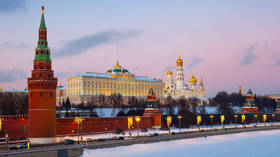Communist commune in US prospers while economy flounders
City dwellers are spurning capitalist culture for a more relaxing and fulfilling lifestyle at a Twin Oaks commune in rural America.
Unlike many of the others set up in the 1960s, Twin Oaks is flourishing. It is now home to one hundred people and has a waiting list.
All the residents of the commune work in the 500 acre commune in rural Virginia, growing and eating their own food and promoting self sufficiency and egalitarianism.
Keenan and Rowan Dakota seem like a typical father and son working together to rebuild a barn, but their lives are far from ordinary because they live at Twin Oaks.
“In mainstream society there is a class system, and we do everything in our policies and in our culture to have a classless society, so it’s important that we all live here equally,” shares Keenan Dakota.
Thirteen-year-old Rowan has spent his entire life in Twin Oaks. Regarding the residents, he says “I like the people here. They’re all very nice people.”
The community has an organized labor system where residents maintain a 42-hour work quota each week. That quota can be met by putting in hours caring for children, making furniture, milking cows and more.
Keenan Dakota believes “There are hardly any other communist societies in the world which haven’t collapsed. The few communist places that are left are Twin Oaks and Cuba.”
However, if a person does not pull their weight in this communist society, they can be exiled back to capitalist America to fend for themselves.
“We have a pretty strong commitment to working and making the place work,” says Keenan, “and if there’s somebody who is consistently not pulling their weight, we have a single sanction that says: You’re outta here.”
As more Americans are losing their jobs in the real world, places like Twin Oaks are becoming more popular.
“With the recession this has become much more popular, this type of living situation, and that could be part of it over the last decade or two,” says Twin Oaks resident Elsa Spencer. “The real income has been dropping and it has been harder for middle class people.”
Even though the community is primarily self-sufficient, they do have a hammock business. The money they make from the hammocks goes into a communal checkbook and used to pay for things like car repairs, clothes and electric bills.
It is their way of conforming capitalism to their communist lifestyle.
“I think an interesting difference between communism and capitalism is that here in our communal society, the people are happier but maybe a little less productive,” explains Keenan. “Out there in the mainstream capitalist society, people are productive – but not as happy.”
That is exactly why Keenan decided to raise his son in Twin Oaks, far away from mainstream America.
He says that “Basically the thing that most parents want for their kids is to be in a safe environment with loving people – that’s what Twin Oaks provides.”












